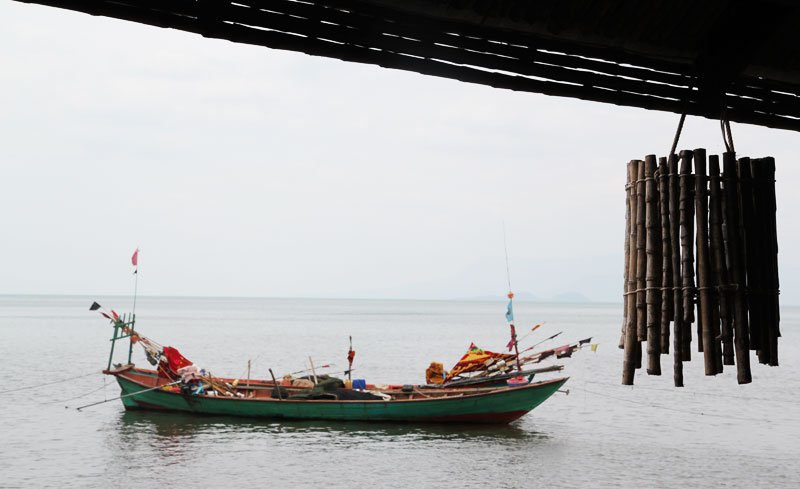Investing in Asia: Opportunities, Challenges, and Impact
11:15 to 12:30 CST: Investing in Asia presents both promise and special considerations, a topic addressed by this panel session which looked at the Asian investor landscape from several different angles. The session, which was moderated by Ms. Rajitha Bearden, Senior Investment Analyst, Southeast Asia at Symbiotics, addressed the expectations, experience, and recommendations of investors that are currently working with regional institutions.
Panelists addressed how social performance management and ratings influence access to investment in the region, as well as issues surrounding the regulation of and access to foreign investment. The conversation also encompassed the impact of foreign investments on microfinance institutions in terms of improving these MFIs processes, governance and innovation — as well as inclusive finance, trade finance, best-practice for investor relationship management, and other relevant topics.
Ms. Radhika Shroff, Vice President and Senior Investment Officer at Accion, began the panel, describing Accion’s work in financial inclusion – working to build the next generation of microfinance institutions, pushing financial inclusion beyond its current borders, and working to improve industry regulations.
Accion has worked in microfinance for over 50 years with beginnings in Latin America, working in 32 countries with over $200 million invested worldwide. In Asia, it works in India, China, the Philippines, and most recently, into Myanmar. ”
What is Accion’s strategy in China? It was invited as an early entrant, one of three foreign owned microcredit companies that was allowed to open in China in 2006. It now has a Beijing hub office, and has launched the first Accion Microcredit China in the city of Chifeng in Inner Mongolia in 2009, giving it time to create a broad industry-building role for itself.
What issues has Accion tried to solve with its new expansion strategy? The company first entered with no foreign partnerships – a problem they quickly realized was considerable. “You cannot enter China without a local partner,” said Ms. Shroff.
“The industry here is nascent – it only really started here in 2007 – and microcredit has a very broad definition,” she said, noting as many as 99 percent of MFIs in China operate very differently from existing models. There is also the challenge of what is currently a very thin talent pool.
“We addressed these learnings by partnering with a local Chinese firm called Sagamore Investments, and devising with them a fairly ambitious but executable strategy,” she said, creating Grassland Finance which will replicate the Chifeng/Inner Mongolia model in the rest of the nation.
One challenge they faced is that in China, a MFI must acquire a new license for each city they operate in, slowing growth. Accion also uses a Shared Services team, with a head office that gives services to a number of different MCCs. Accion launched its first microcredit expansion institution in Songshan, Inner Mongolia in November 2013, she said, and will then look to expand into other regions of China – with Hunan and Pudong under consideration.
Accion’s reputation has preceded it, said Ms. Shroff, noting that provincial governments have begun to approach Accion themselves – proof, she said, of the institution’s know-how.
What is Accion’s corporate structure in China? There is a Hong Kong holding company called Grasslands Finance, whose vision is to own five microcredit institutions in China than unite them under a shared-services platform, using home-grown talent built over the past six or seven years. Each institution will be held separately off shore in Hong Kong, she added, providing flexibility and exit.
Mr. Swapnil Kant Neeraj, Principal Investment Officer, Financial Institutions Group, International Finance Corporation (IFC) was next to speak, thanking the audience for attending and promising a “good return on your investment” of time.
Mr. Neeraj began by describing the International Finance Corporation’s structure and activities, with offices in over 100 countries and investments in multiple countries with over 600 projects.
“We are of significant size, one of the largest institutions that invests globally,” said Mr. Neeraj. “We do investment services, on the full spectrum,” said Mr. Neeraj, including risk-sharing, portfolio support, risk mitigation, and other investment functions.
Mr. Neeraj displayed a map vividly displaying the unbanked status of half the world, with 2.5 billion currently lacking banking services. The problem is worse in Asia, with the continent accounting for 60 to 70 percent of the planet’s unbanked population. IFC focuses on the larger countries, as he noted that 15 nations account for 75 percent of the unbanked, with 30 percent residing in China alone.
“The World Bank has a vision of universal access by 2020,” said Mr. Neeraj, beginning with removing obstacles to access in the nations it operates in, as well as fostering financial innovation and technology solutions. “We also understand we really have to work towards financial inclusion.”
What is the IFC’s value proposition? “We do a lot of mobilizations – we don’t believe in investing in ourselves, and we invest with others and invest alongside others,” said Mr. Neeraj, noting that they seek to provide the maximum value added to the institutions they work with.
In terms of borrowers, said Mr. Neeraj, Asia accounts for almost 60 percent of the IFC’s borrowers, with a total of $3.5 billion total invested in microfinance across the world. The IFC further supports advisory pillars which in turn support numerous clients. In terms of mainstreaming the sector, the IFC has worked to bring more local and private investors, as well as creating an incentive structure in which local investors and local commercial banks can invest in it.
The IFC prides itself on the client and partner relationship, he said, noting that it invests in many microfinance banks which have in turn transitioned into successful full-scale commercial banks.
“This proves that [microfinance] is scalable, and you can do it in a sustainable manner,” he said. The institution further invests in various holding companies, with more than 66 individual microfinance banks or MFIs in 44 countries, primarily in Africa.
“We are trying to help banks downscale,” he said, noting a successful example in Indonesia, as well as investments in financial technology services providers in multiple nations that can help them reach roughly 50 million clients.
“We have invested more than $300 million in microfinance funds,” said Mr. Neeraj, across over 200 MFIs, noting that IFC focuses on multicyclical investments in light of the financial crisis. “When the Indian crisis happened, we created our own counter-cyclical role,” he noted.
“We feel that Asia is really going to be in the center stage, and we need to address the issues of financial inclusion,” he said in closing.
Ms. Maud Savary-Mornet, Head of Financial Institutions, Debt Asia Pacific, responsAbility, spoke next. Ms. Savary-Mornet noted that over half of India’s population does not have access to sanitation facilities which has “tremendous social impact in terms of public health.”
She continued, “1000 children die daily due to sanitation related diseases. This basic necessity is especially dramatic for Indian women – lack of sanitation is a major cause for girls to drop out of school. ResponsAbility invested in a company called Saraplast which is India’s leading provider of portable toilet sanitation services that cater to the underserved segment of the society. Our investment will help the company double its footprint to 6,000 toilets over the next two years.”
What does responsAbility do? “We are the largest independent asset manager,” she said, managing $2.2 billion USD in developing nations. ResponsAbility aims to stimulate private initiative in developing countries, focusing on 5 key sectors: financial, agriculture, energy, education and health. Founded in 2003, it has offices in Zurich, Paris, Lima, Madrid, and Mumbai.
“Why do we believe that we should invest beyond microfinance?” asked Ms. Savary-Mornet. She answered, “In the 90 countries we invest, 700m people have decent daily cash flows and a persistent demand for essential household necessities such as finance, healthcare, education and energy. Yet, these households’ purchasing power is drained by high prices as well as inadequate offer and delivery. This is known as the poverty-penalty. Its fundamental causes are inadequate access to finance and markets. Consequently, our investment goal is to boost private sector development with a focus on permanent access to essential products and services.”
ResponsAbility recently won the right to manage the Global Climate Partnership Fund, an international fund established in 2010 which seeks to invest in funds that work on renewable energy projects, as well as providing technical assistance.
Ms. Savary-Mornet noted there is no direct link between country size and the size of the investment: “Asia is a mixed bag, and there are a lot of factors,” she said, citing problems like access to local currency, government regulation, the scale of need, and other issues.
In Cambodia, responsAbility notes the nation has a well-structured and regulated market with a functioning credit bureau, but also has a market with increasing competition, a fast growing deposit base, and concerns vis a vis the monitoring of over-indebtedness.
In Mongolia, most MFI players are SME banks, with adequate regulation and supervision and a functioning credit bureau including banks and NBFIs. There is a low NBFI barrier to entry, poor governance within them, and macro-economic risks.
In Indonesia, the company would like to invest more in its huge domestic environment but there are “massive challenges” to expansion, including huge state-owned actors, a credit bureau which excludes MF, a limited number of MFIs, high hedging costs, and a poorly organized and regulated sector.
Meanwhile, in China, there are 7,398 micro-credit companies, but many challenges to investing in this vast market. These include regulatory risk, risks that are higher in certain regions such as coastal areas, limited credit bureau effectiveness, regulations limiting MCCs growth, and restrictions on foreign investments.
Last to speak was Ms. Fernanada Lima, Director, Private Equity, at Developing World Markets. DWM started very small, she noted, beginning 20 years ago in the basement of one of its partners. It has focused on inclusive finance over the past decade, said Ms. Lima, and is the largest inclusive finance investment manage in the US with $665 million in AUM across 6 funds.
DWM wishes to focus on improving the lives of those at the “bottom of the pyramid” by leveraging capital markets. The small team of 30 people speak numerous languages and are a SEC-regulated RIA, as well as a FINRA-regulated broker dealer and a CSF Regulated Fund Manager in Luxembourg.
Ms. Lima noted DWM finances over 140 inclusive financial institution across 40 countries, working to channel the resources from developed countries through its funds and into inclusive finance institutions. “The main idea is to fund an take these institutions to the next level, really to help the 2.5 billion who are unbanked and under-served with responsible and life-enhancing financial services.”
The Equity team is invested in several nations, said Ms. Lima, noting that its approach to equity investments is not just to provide capital, but to boost these institutions to the next level and to achieve their strategic goals more quickly and more effectively. “Over the years we have developed a framework we like to apply, and of course it depends on which individual institution will need.”
“The first pillar is governance,” said Ms. Lima, using not only its own team on the board, but also by hiring around 30 people, who can be either local board members who represent our interests, or a senior management team,or consultants who spend time with the company helping to develop a product. “We count on a large network of people,” she said.
“We focus not just on senior and sexy people, but people who will be really hands on and help their companies,” she said.
The second pillar is management capacity, focusing that the right people run the countries, whose interests are aligned well with DWM’s needs. The third pillar is operations, which works to improve credit processes and other key functions.
Fourth is balance sheet management, noting that most financial institutions are leveraged. The last is business strategy and product development, as a microfinance institution works to create layers of products that can help it move to the next level across different markets.
What is DWM’s social impact? The company looks not just to support industry-wide initiatives, but also at the entry level, looking at how the organization measures impact and screens investment. It uses what is called a Social Important Questionnaire and Scorecard, which looks at key areas like client welfare and outreach, governance, responsibility, community, and other areas. It works with outsiders to help measure impact as well.
In social impact, DWM looks to do more than just work as a debt provider, said Ms. Lima. It is invested in microcredit, she said, with a 92 percent stake in DWC Cambodia. It works to be present, which she calls “key” to financial institution, as well as client protection principles.
“Over-indebtedness is a key issue” she said, noting that it’s not all about credit in this sector – it’s about building multiple layers of services.
What is next for DWM? It is looking for new portfolio companies, said Ms. Lima, preferring established companies to start-ups,companies that meet criteria such as three years of operation, robust corporate government, stringent policies and procedures.
In the conversation, Ms. Bearden was joined by Ms. Radhika Shroff, Vice President and Senior Investment Officer at Accion, Mr. Swapnil Kant Neeraj, Principal Investment Officer, Financial Institutions Group, International Finance Corporation (IFC), World Bank Group, Ms. Maud Savary-Mornet, Head of Financial Institutions, Debt Asia Pacific, responsAbility, and Ms. Fernanada Lima, Director, Private Equity, at Developing World Markets.
The session was facilitated by Symbiotics, a Swiss-based investment company with offices in four continents that specializes in emerging, sustainable, and inclusive finance.








